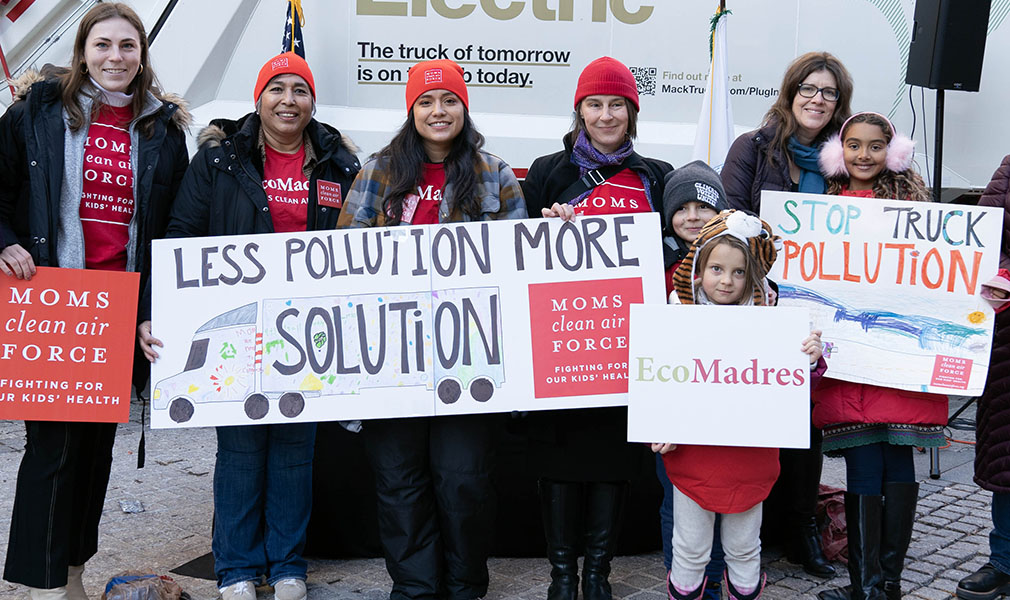
This was written by Supermom Alexis DiMarco, who lives in New Canaan, Connecticut.
For nearly two decades, Connecticut has been at the forefront in taking the necessary steps to clean up toxic air pollution from cars and trucks, which, at close to 40%, is the largest source of the state’s air pollution. In 2022, Governor Ned Lamont reaffirmed this commitment, with overwhelming support from Connecticut residents, and signed strong protections from truck pollution into law with the Connecticut Clean Air Act.
These efforts are necessary: Connecticut has some of the worst air quality in the country. The American Lung Association gave the state a dismal “Straight Fs” for Ozone in its most recent “State of the Air” report. As the mother of two young children, this failing grade is unacceptable. I know that small, growing lungs are especially vulnerable to toxic emissions and that a child’s body can’t metabolize unhealthy air as effectively as an adult’s can. As a Latina, I’m additionally concerned since Hispanic children are 40% more likely to die of an asthma attack than non-Hispanic children.
Tomorrow, our state legislature votes on whether to change the law passed in 2004 requiring Connecticut to adopt more stringent standards for passenger cars and trucks. The Advanced Clean Cars II regulations require an increasing percentage of new zero-emission light-duty vehicles to dealerships starting in 2026, reaching 100% by 2035. They also incentivize manufacturers to lower the cost of electric vehicles and enhance consumer protections. These rules will reduce pollution from cars and trucks during the transition period, while increasing the supply of zero-emission trucks and buses, most notably electric buses.
These efforts are critical and are a win-win for everyone—residents, dealers, and manufacturers.
Connecticut forged a pioneering path decades ago and joined a coalition of states like California, Colorado, New Mexico, New Jersey, and neighboring Vermont to commit to clean vehicle standards for new cars and trucks. Those states have continued to commit to clean vehicle standards for new cars and trucks. They have done so because these regulations provide crucial public health, environmental, and economic benefits. It is worth noting that transportation is already Connecticut’s largest green jobs employer, so imagine what’s possible if we maintain our dedication to better standards and improved technology.
It’s not too late to reclaim our rightful place of leadership in the multi-state coalition and keep our stringent pollution standards in place. These protections improve health, improve air quality, cut climate pollution, and even create quality jobs.
Let’s urge our lawmakers to solve our climate problems, not pass them on to our children. It’s time to protect Connecticut’s legacy of leadership.
Tell Connecticut Lawmakers: Keep Clean Car and Truck Standards Strong




